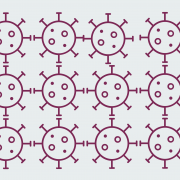Polygenic scores show promise for improved prostate cancer detection
Three-in-ten men would have been spared an invasive prostate cancer-confirming biopsy if their own genomic data were considered, say Stanford University researchers
The use of polygenic scores in prostate cancer testing could have prevented 30% of men from having unnecessary prostate biopsies, researchers recently reported in Nature Medicine. By looking at both the patient’s genome and their prostate-specific antigen (PSA) levels, clinicians could have a better idea on if the patient’s PSA levels had increased or not, helping them decide what cancer tests (if any) should be done.
“Some men have higher PSA levels due to their genetics,” said senior author and Stanford University professor John Witte. “They don’t have cancer, but the higher PSA level leads to a cascade of unnecessary medical interventions like biopsy.” This over treatment, coupled with how often prostate cancer is encountered – 1 in 8 British men will develop the disease, Prostate Cancer UK estimate – make it attractive to research that can improve diagnoses or screening programmes.
- GeNotes for clinicians: Presentation: Patient with prostate cancer
Does the NHS have a prostate cancer screening programme?
There’s currently no NHS screening programme for prostate cancer, mirroring the UK National Screening Committee’s 2020 recommendations. This is because there isn’t a test where the benefits of early cancer detection would outweigh the risks of a misleading result. On the horizon, the ongoing NHS-Galleri trial could provide insight into better screening for such cancers.
Today, the best non-invasive method is a blood test that detects the level of PSA protein, which is made by the prostate. The test is a good starting point as men with prostate cancer are more likely to have raised PSA levels, though there are some considerations.
For one, a high PSA level could come from other conditions such as prostatitis, which is a swelling of the prostate, or benign prostate enlargement.
Another is that natural levels of PSA vary between men without cancer. Because of this, positive cancer results may be mistakenly suspected in those with naturally higher PSA levels. On the other hand, some men will have their cancer go undetected because, even if their level is raised, as it still appears ‘normal’ when compared with others.
- NHS.uk: Should I have a PSA test?
A polygenic approach
The research, from Stanford University and published in Nature Medicine, looked at whether this natural variation in PSA levels can be predicted. To do this they used a tool called ‘polygenic scores’, also known as ‘polygenic risk scores’. We described these scores in detail in a previous blog post, but, in brief, they bring together genotype information from different areas of the genome to calculate the chance (or ‘risk’) of a particular trait occurring in an individual. In this instance, researchers wanted to see if a man’s normal PSA level could be predicted from their genome.
The researchers looked at the genomes – some coming from UK Biobank DNA samples – of almost 100,000 men who didn’t have prostate cancer. The researchers also looked at the men’s PSA levels. By comparing the two, they identified 128 areas in the genome which could be used to create a polygenic score for PSA level. They then combined this with PSA data to create an ‘adjusted PSA score’ indicating whether PSA levels were higher than expected for a patient.
Applying the PSA score to real-world cases
Researchers tested the adjusted PSA scores on data coming from men who had or didn’t have cancer (confirmed through biopsy). They found that about 30% of them, based on adjusted PSA level alone, would not have needed the invasive procedure. This means, according to the paper, 3 in 10 men had not needed to be biopsied.
Interestingly, the adjusted PSA score appeared to be more accurate for fast-growing cancers than slow-growing ones. “What we’re really worried about are those aggressive cases, so the fact that we’re able to show that genetically adjusted PSA is more predictive of aggressive disease is really promising,” said lead author and assistant professor of epidemiology and population health, Dr Linda Kachuri.
Polygenic scores: a future tool against cancer?
The presented Stanford research and last year’s reported University of Exeter study show different ways that polygenic scores can, in the future, inform clinical decisions. Today, however, there remain limitations to their use.
A lack of diversity in genome sample banks mean that research results may not be applicable to Black populations, who are a group considered at higher risk from prostate cancer. Indeed, the Stanford researchers found their test was more accurate in patients of European ancestry. “Ideally, we want to come up with a single score that works well for everybody, across the spectrum of ancestry,” Dr Kachuri said. With this in mind, they are now working on a version that will be useful to more people.
- Understand: The need for diversity in genomic datasets
Polygenic scores are a potential healthcare tool noted in last year’s report, ‘Accelerating genomic medicine in the NHS’. Ultimately, if we see more positive research results, such as those seen in the Stanford paper, then there’s every reason to see it as a future tool in a clinician’s diagnostic toolbox.









